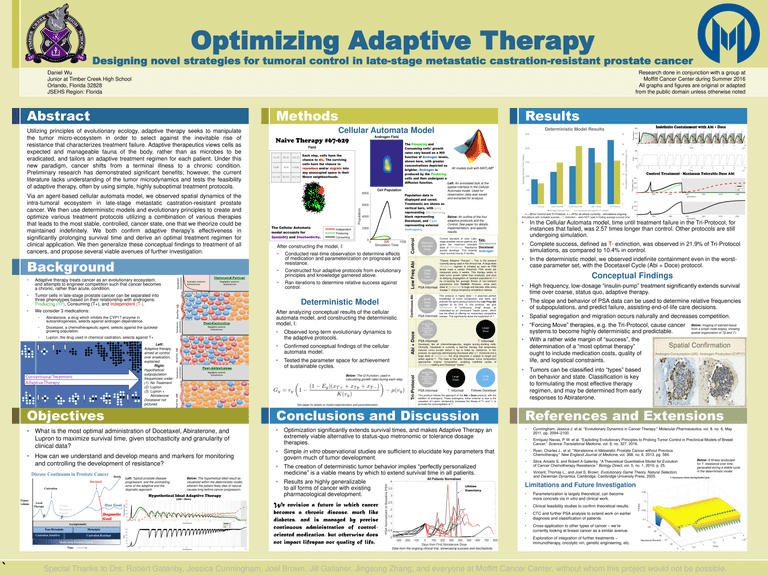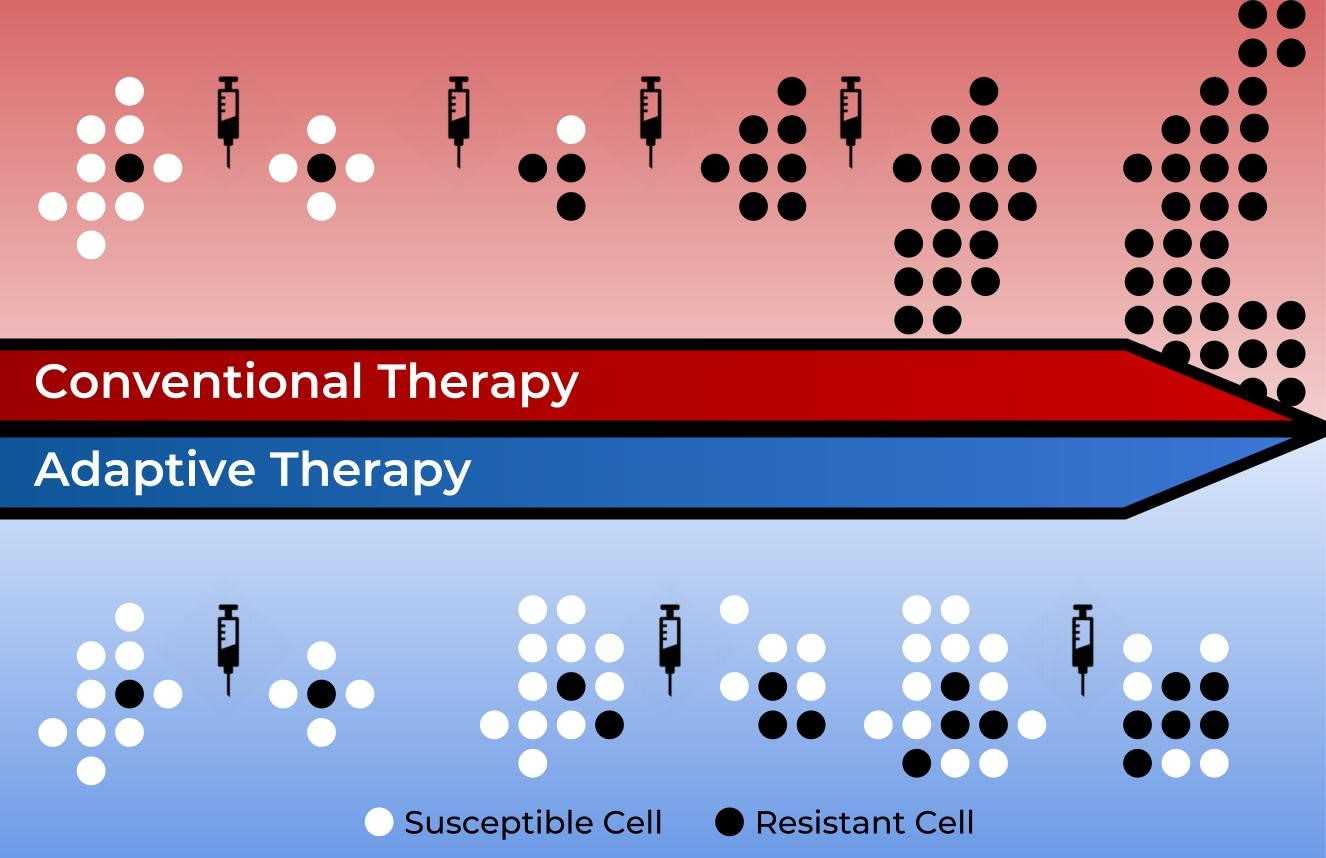Utilizing principles of evolutionary ecology, adaptive therapy seeks to manipulate the tumor micro-ecosystem in order to select against the inevitable rise of resistance that characterizes treatment failure. Adaptive therapeutics views cells as expected and manageable fauna of the body, rather than as microbes to be eradicated, and tailors an adaptive treatment regimen for each patient. Under this new paradigm, cancer shifts from a terminal illness to a chronic condition. Preliminary research has demonstrated significant benefits; however, the current literature lacks understanding of the tumor microdynamics and tests the feasibility of adaptive therapy, often by using simple, highly suboptimal treatment protocols.
During a summer in Moffitt Cancer Center's Integrated Mathematical Oncology Program, I built an agent-based cellular automata model, which was used to observe spatial dynamics of the intra-tumoral ecosystem in late-stage metastatic castration-resistant prostate cancer. We then use deterministic models and evolutionary principles to create and optimize various treatment protocols utilizing a combination of various therapies that leads to the most stable, controlled, cancer state, one that we theorize could be maintained indefinitely. We both confirm adaptive therapy's effectiveness in significantly prolonging survival time and derive an optimal treatment regimen for clinical application. We then generalize these conceptual findings to treatment of all cancers, and propose several viable avenues of further investigation.
Here's a poster we presented on our work.

